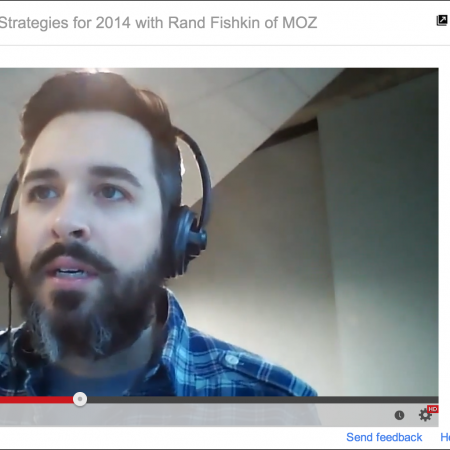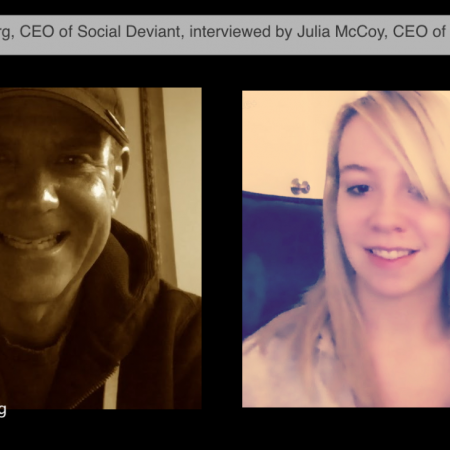The Story Behind Express Writers (As We Celebrate 3 Years)
So, Express Writers has been around now for three years. This blog, by the CEO (Julia), takes a look at our crazy journey. I hope you’ll be inspired; I think you’ll be amused; if anything, it will be a fun read. I promise. And if you’re here reading our celebratory blog today, there’s probably a 95% chance you helped in our success somehow, from giving our CEO a handshake to buying our content or writing it. And since you’re probably a little bit invested (or a lot), it’s worth a read. Express Writers was launched mid-May of 2011; the launch was not funded, invested or marketed by a third party; total costs to launch were kept under $170; and the single person responsible was myself, a 20-year-old female who dropped out of college to leave a nursing degree and pursue her passion, copywriting. Who Is Julia? In 2011, our founding date, I was a typical broke college student, working overtime at McDonalds, a job I’d started in 2005; pulling all-nighters, working 10 hour shifts at a time. I was also a full-time college student studying nursing (RN), piling up more than 12 credit classes per semester, going through summer. In the middle of all that, I wasn’t happy. I didn’t like my restaurant shift; I was discovering in school that nursing, my golden “hope and dream” as a child, was not for me. Naturally, I was an inspired young person, with a natural talent in computers and writing. In a pastor’s family, and taught to be quiet in public, I loved to come up with ideas on my own and implement them. How did the change from what I was doing to what I love doing happen? I simply woke up one day and asked myself, “What does Julia love to do the most?” And I was inspired and motivated to find the answer—not just think about it. I knew the answer when I looked back. My passion was writing. To understand my passion, you’ll need a glimpse at home-schooled, four-eyed, 8-year-old me. I had started writing a novel that was 200 pages when it was completed by the time I was 12 (with a subsequent trilogy in the works). It was a medieval fiction tale about a knight, incorporating my love of the post-Dark-Ages and a lot of research I had done about that era. Instead of playing in the yard every summer afternoon, I was in the house drumming my ideas out on our Windows ‘95 computer when I was 11 years old. I dreamed, ate, slept that story. I created it; I loved my characters; sometimes I was too caught up in it. To get some outside expertise on my writing, I was involved at Writing.com, an awesome online community where writers can sign up and publish their own portfolio, feature their writing online, start networking and meeting fellow writers. (I would recommend this resource primarily for fiction and peer networking: you can’t earn anything from it.) I had an established account there and was getting book reviews for sample chapters, talking to people who were three times my age. They were reading my book samples and loving it. At least 10 people said they would buy it as soon as I published it. When the book was completed after countless stages of re-reading and revisions with my family and adult friends of my family, I started mailing copies out. I sent my book in to at least 20 writing contests, only to be rejected by all. (One sent a lovely letter saying their entire staff read the book and loved it, but I needed to be a little older than 12.) I lined up a publisher after researching over 100 of them: I was going to use Lulu.com, a self-publisher. I wanted to do this myself. (I had a really hands-on type of entrepreneur-mindset from that age.) The big morning comes—I woke up to work on last touches, my dad and mom are there in the room and they’re talking about my publishing goals. I insert my 3 ½ floppy, where my book was stored, in the drive: those horrible beep sounds erupt from the evil Windows 95 machine like a mad cow on steroids…and I read an error message that states, Floppy drive has failed. Reformat? Reformatting meant wiping the drive. My dad jumped to the computer; we both tried to work on every idea to recover the drive contents—but alas. It had failed. The book was gone. Fast-forward a little. To be accredited in homeschooling in Pennsylvania, homeschoolers had to take huge, long tests every 5th, 8th, and 12th grade. They included SAT and ACT content, and it took about 7 hours to sit down and get through them. I scored past-college grades on every English test, in each grade level, from reading comprehension to creative writing. I loved doing these tests. They weren’t a test; they were fun. When I took my entrance tests for college, I scored out of every single English class requirement except the mandatory one. Year 2005. When I was 14, I started two companies, a local cleaning services company and a computer repair company, employing myself. I walked door-to-door on summer days to market them. I did better with the computer repair company; I knew how to troubleshoot computers and fix just about any minor issue, from network issues to programs not installing. (Minor stuff.) With the computer repair company, I earned about $5,000 my first year, driving to local’s houses and fixing their computers. I only got one gig with the cleaning company before I decided to drop it. (I wasn’t the best cleaner in the world.) I also started working at McDonalds after I got a permit for underage workers (that little blue card). Year 2007. I was 16. I learned HTML code myself; I helped build my dad’s website; I was a moderator on several forums; and I started getting into paid surveys online, … Read more



